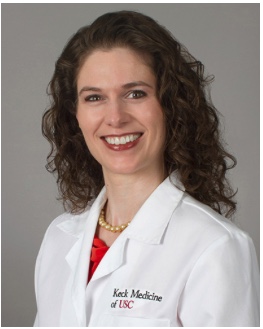
Courtney Voelker, MD, PhD, is a Rhodes Scholar and board-certified neurotologist. She is Division Chief of Otology, Neurotology and Skull Base Surgery and Director of the Pediatric Cochlear Implant Program in the Department of Otolaryngology—Head & Neck Surgery at the Keck School of Medicine at USC. Dr. Voelker has conducted cutting-edge research on the physiology and diseases of the inner ear at Brown University, the University of Oxford, Washington University in St. Louis, and the National Institutes of Health (NIH).
Dr. Voelker did her residency in Otolaryngology at Washington University from 2007-2012 followed by a fellowship in Otology/Neurotology-Lateral Skull Base Surgery at the House Ear Clinic in Los Angeles. She was kind enough to spend some time filling us in on what she’s been up to since she trained with our department.
What led you to become a neurotologist?
I received a PhD from Oxford in developmental neurobiology and I was studying how the sensory system affects the brain. As I furthered my education in medicine, I was really intrigued that neurotology is a field that studies how the sensory system affects us and when it goes wrong, how that can really debilitate a person and affect their quality of life. I was led into neurotology from a neuroscience standpoint.
What brings you the greatest joy in your work?
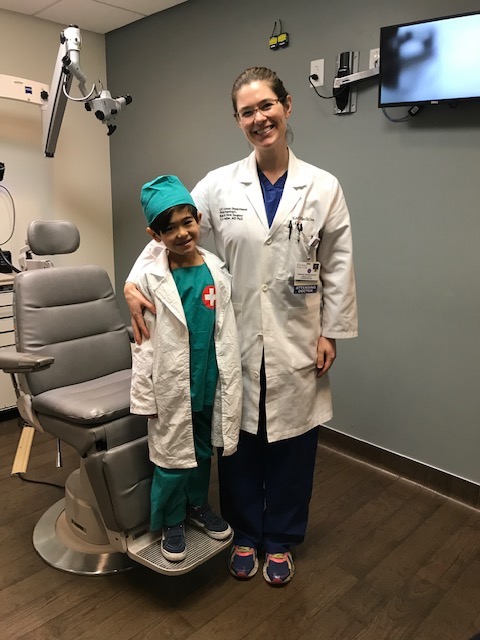
My greatest joy is helping people who suffer with hearing and balance problems. I especially enjoy restoring hearing in patients that have struggled for a long time.
What are some of the biggest accomplishments that you’re most proud of?
I’m most proud of the mentors that I’ve had along the way. I’ve been blessed with a lot of really good mentors, many of whom continue to be at Washington University. They taught me how to be a compassionate doctor and also taught me my surgical skills. I’m also so proud of my family – I have two little boys who are two and three years old. It’s hard to balance everything sometimes but with a supportive family you just make it work.
Looking back on your training at Washington University, what were some of your biggest strengths? Were there any unexpected surprises along the way?
One of the things that attracted me most to Washington University was that the chairman Rick Chole was an MD, PhD, and had his own lab as a physician scientist. I was really looking for a place that could foster me as a scientist and also foster clinical excellence. After looking around the country, those places were few and far between.
I was really looking for a place that could foster me as a scientist and also foster clinical excellence.
Courtney Voelker, MD, PhD
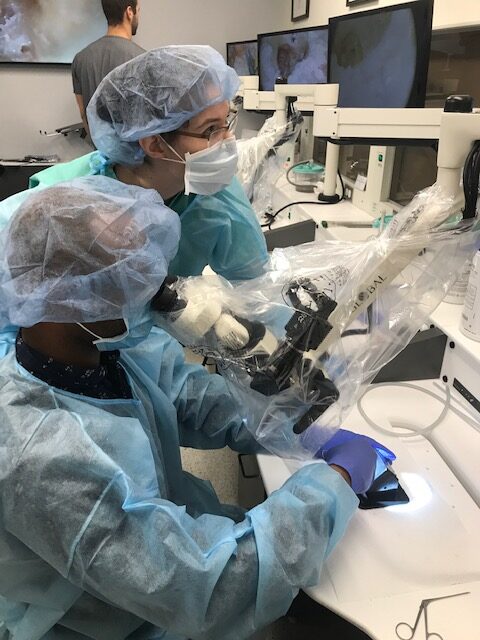
The biggest strength of Washington University is that they’re a clinical and surgical powerhouse, but they also have really world-renowned science going on there. The two things coming together are what’s so important when you’re training residents. That’s really why I went there. I was very happy there. I had wonderful mentors there. You know, there’s not one day that goes by that I don’t use something I learned from all the people that taught me, especially the otologists Rick Chole, Gail Neely, Joel Goebel, Tim Hullar, and Keiko Hirose as well as all of the talented head and neck surgeons. I’m just very grateful and blessed for my training.
While training at Washington University, what experience stood out to you the most?
I think the blend of one-on-one training and also the ability to gain graduated independence. What’s really wonderful about Washington University is they have all different clinical settings in which the residents can get trained. That leads to graduated independence.
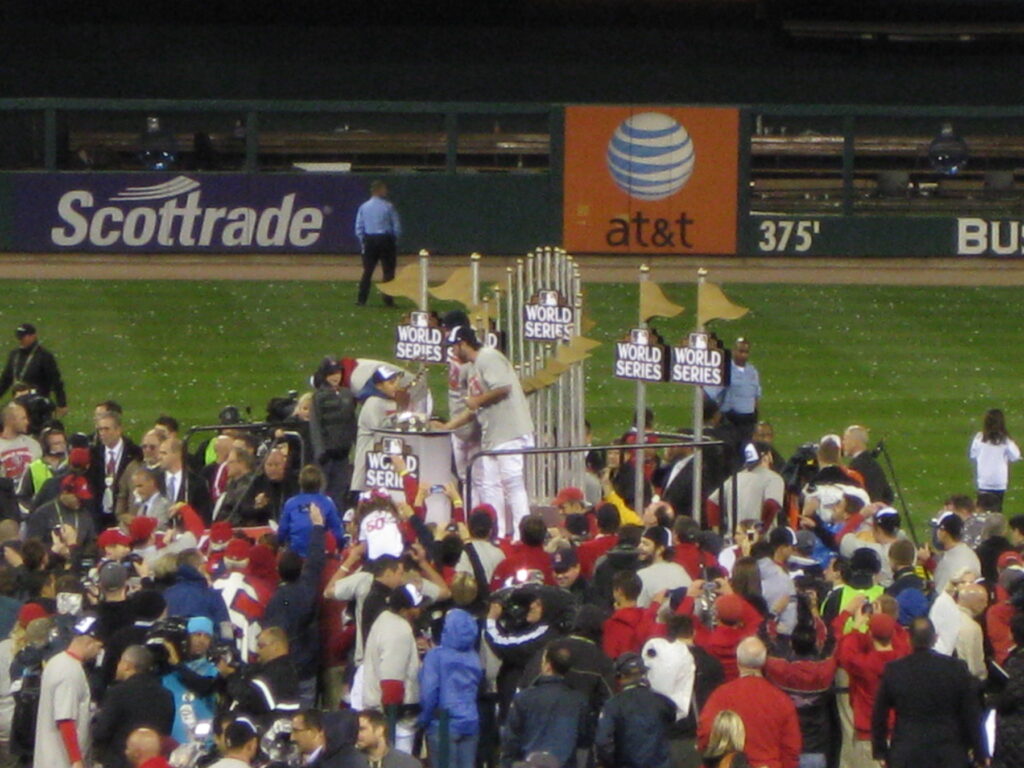
And I think that’s what really helps you launch off on your own when you finally graduate. I would say the graduated independence of clinical training was really good. Plus, I was there when the baseball team won the World Series. And coming from Oregon, we don’t have a baseball team like that, so that was quite the experience.
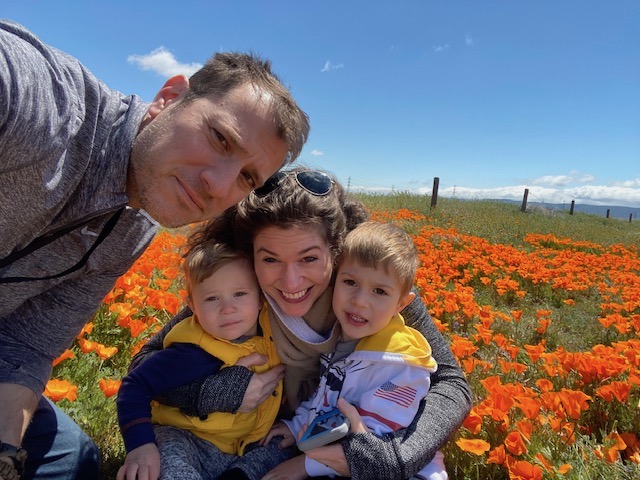
Do you have any interesting or fun hobbies?
Our family loves the outdoors, and we explore the beauty of Southern California every chance we get. We love going on road trips! And being from Oregon, I’m teaching my little boys how to fish. We’re doing a lot of outdoor training with the boys.
All of our free time is spent exploring the outdoors for sure. And at two and three, they’re still struggling to understand what’s going on with the fish and everything like that. I didn’t get a lot of chances to go fishing during my training in Missouri. I did go to the Lake of the Ozarks a couple times, though. I learned how to water ski there when I was a little girl. So, it was kind of fun to go back and they have pretty good fishing spots over there.